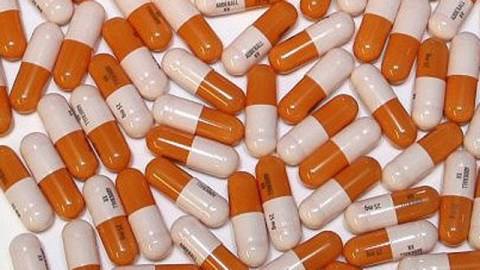ADHD and Stimulants: Brain Boost or Drug Abuse?

The narrative of personal improvement is as American as baseball—almost as American as a fondness for illegal and prescription drugs. From steroids and human growth hormones on the baseball diamond to amphetamines in college libraries and quadrangles, performance enhancing drugs combine a desire for productivity and success with drug abuse in a way that is uniquely American. And the statistics confirm their growing demand: the journal Addiction reports that on certain college campuses, especially competitive Northeastern colleges, up to 25 percent of students admitted to having misused ADHD medication in the past year. Yet despite their prevalence, these drugs, and the disorder they treat, are highly misunderstood.
Firstly, the widespread abuse contributes to a sense that ADHD is an invented illness. This is simply not the case says Dr. Harold Koplewicz, one of the nation’s leading child psychiatrists. Attention Deficit/Hyperactivity Disorder may be misunderstood, he says, but that doesn’t make it any less real: It is a neurological disorder that affects an estimated 15 to 20 million Americans and is marked by measurable neurochemical differences in the brain.
“When you have Attention Deficit/Hyperactivity Disorder, you use your dopamine and your norepinephrine faster in your brain than the average person,” says Koplewicz. “And when you don’t have enough of that, you become inattentive or you become more impulsive or you’re more hyperactive.”
There are also structural differences in the brain associated with ADHD. A study of children with ADHD by the National Institute for Mental Health found that their frontal lobes and cerebellum were significantly smaller than normal, as Koplewicz explains in the video below. Given the functions of these brain areas, these findings make sense, he says. The frontal lobe is the site of executive function, the ability to plan not just what important tasks must be achieved but also to prioritize these tasks in order of importance, abilities that are impaired by ADHD. The cerebellum, meanwhile, deals with coordination, and the deficiency likely contributes to hyperactivity.
But ADHD is a disorder of degree; it is a spectrum disorder, not a binary, you-have-it-or-you-don’t one. And the drugs that treat it—drugs like Adderall (dextroamphetamine) and Ritalin (methylphenidate)—boost one’s ability to focus regardless of one’s baseline attentiveness. The common belief that those with ADHD respond to these medicines differently than the normal population is just a myth, says Koplewicz. These drugs work by blocking the “reuptake,” or reabsorption, of neurotransmitters in the synapses between our neurons, the effects of which are felt by all.
“When someone with ADHD gets these medicines, they get closer to what a normal, typical brain response is: they look less hyperactive, they look more attentive, and therefore they’re less impulsive,” says Koplewicz. But when a typical person takes these drugs, his cognitive faculties are also sharpened. “For all of us, whenever we would take one of these medicines your dopamine and norepinephrine are going to be more readily available in the brain.”
Given that these drugs raise attentiveness indiscriminately, the interesting question isn’t why so many people are using these drugs but whether more people should be using them. If people with ADHD can take Ritalin and Adderall to become more “normal,” shouldn’t healthy people be able to use them to surpass normality? Or is there an ethical difference between compensating for a deficiency and enhancing beyond what’s considered average?
At the heart of this debate lies a much larger question, one that will become even more relevant in the future: Is all human enhancement ethically wrong? Transhumanists like Ray Kurzweil and Julian Savulescu are squarely in favor of enhancement but there is still a sense among many that there is something morally dubious about improving something with chemicals that isn’t broken.
In 2008 Stanford law professor Henry Greely and group of physicians and neuroethicists published an article in the journal Nature rejecting the idea that “enhancement” should be a dirty word. “Cognitive enhancement has much to offer individuals and society, and a proper societal response will involve making enhancements available while managing their risks,” they write. Prescription drugs will always require a cost/benefit analysis weighing the potential side effects, like increased heart rate, elevated blood pressure, and diminished appetite in the case of Ritalin and Adderall. For those who are prescribed ADHD medicine, the cognitive boost outweighs these possible side effects. Greely and his colleagues believe that normal people, who experience the same boost and the same side effects should be able to make a similar internal calculus and opt for cognitive enhancement as well.
There are of course ethical concerns that must be addressed, including the the fairness of access to these drugs and the long-term safety of their non-pharmaceutical use, something about which many remain skeptical. In fact, recent studies claim that these drugs stunt growth and causes hallucinations; others link them to suicide and sudden death. Greely urges more long-term, evidence-based studies on the effects of ADHD drugs, but pharmaceutical industries have proven resistant to this idea. A report from pharmaceutical giant Novartis, on behalf of a consortium of drugmakers, nixed the idea of further long-term studies in 2009. The reason, they cited: comorbidity. “It is well established that ADHD co-occurs with other psychiatric disorders, including disruptive behavioral disorders such as oppositional defiant disorder, conduct disorder; and mood disorders such as depression, bipolar disorder, and anxiety disorders,” the report states. In other words, negative effects measured in the study might result from co-existing mental disorders which would require other forms of treatment.
Takeaway
ADHD is a variation on “normal,” and drugs like Adderall and Ritalin can have an effect in the brain regardless of where one falls on the spectrum. Last year over 16 million prescriptions were filled for Adderall and Adderall XR, and there are likely many others using the drugs as enhancements rather than as treatment. America and the rest of the world will have to soon decide whether or not science should be leveraged to enhance the healthy in addition to treating the impaired.
More Resources
—”Towards Responsible Use of Cognitive Enhancing Drugs by the Healthy,” (2008) published in the journal Nature.
—”Findings from the NIMH Multimodal Treatment Study of ADHD (MTA),” (2001) one of the largest studies to date of ADHD treatment.





